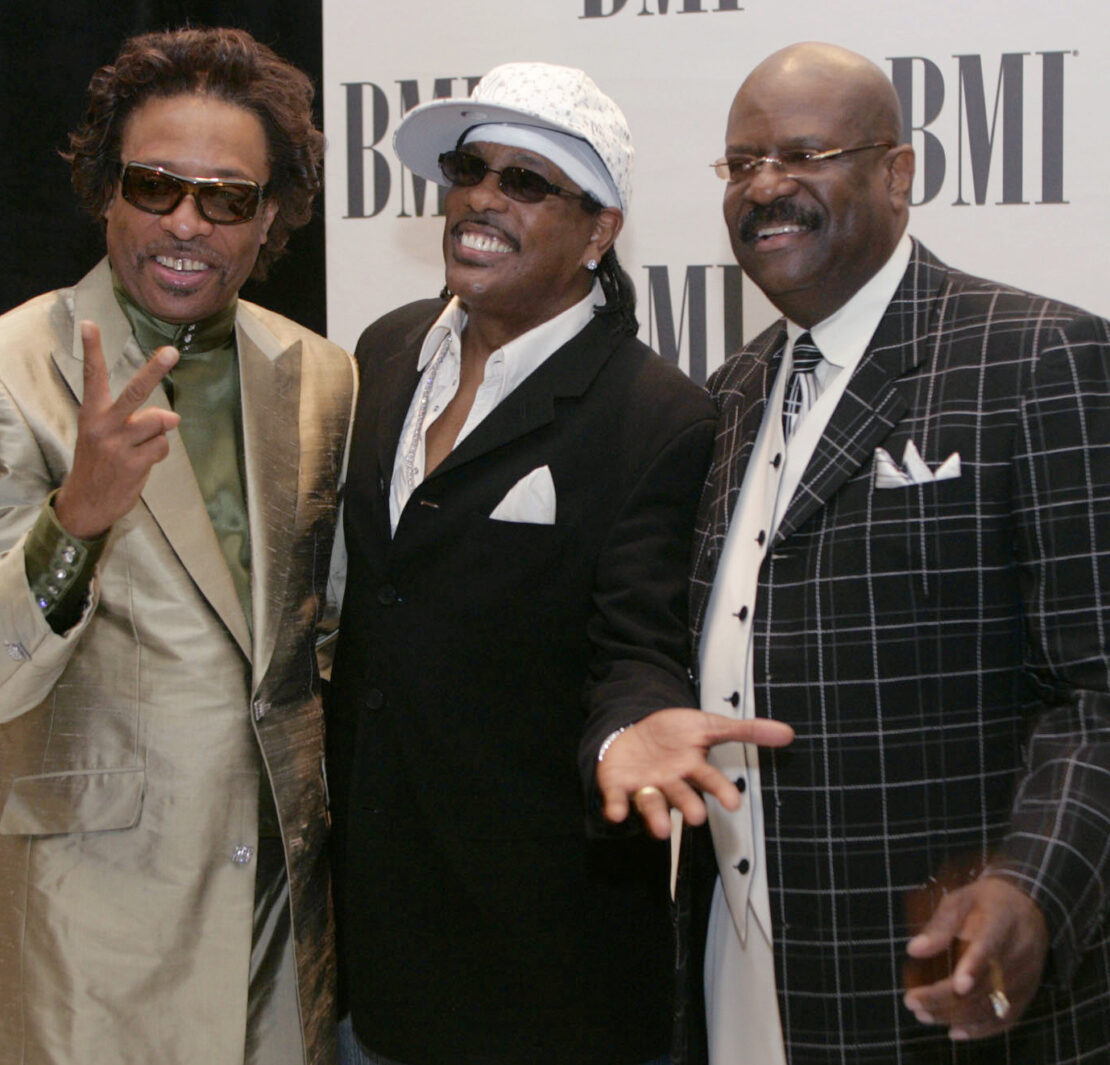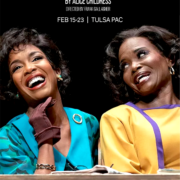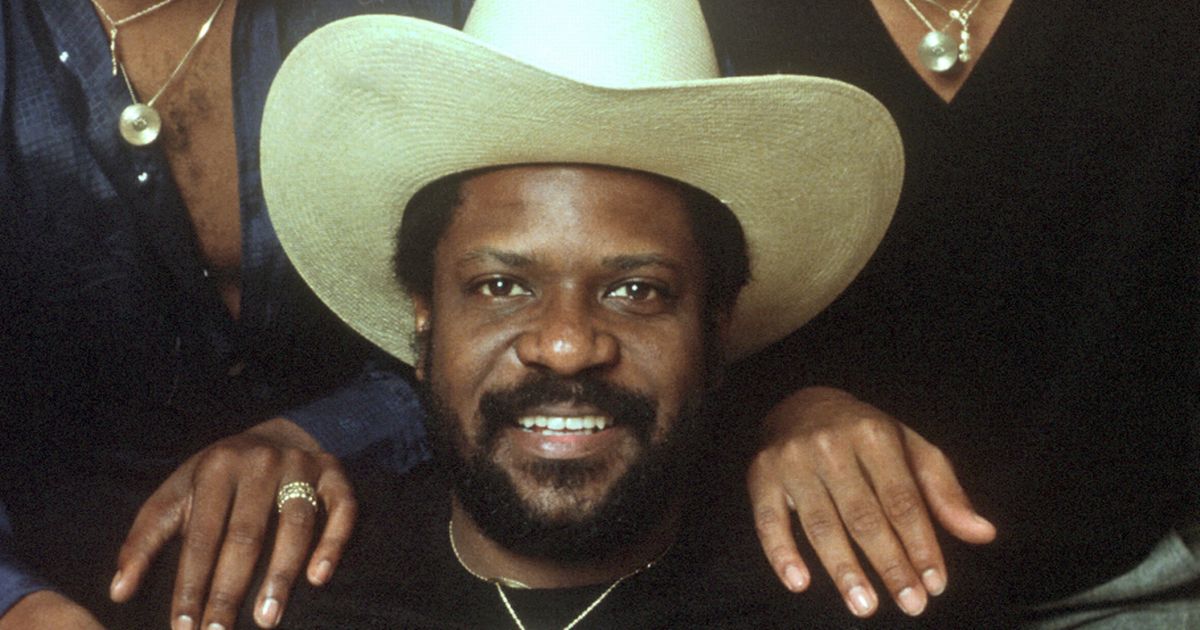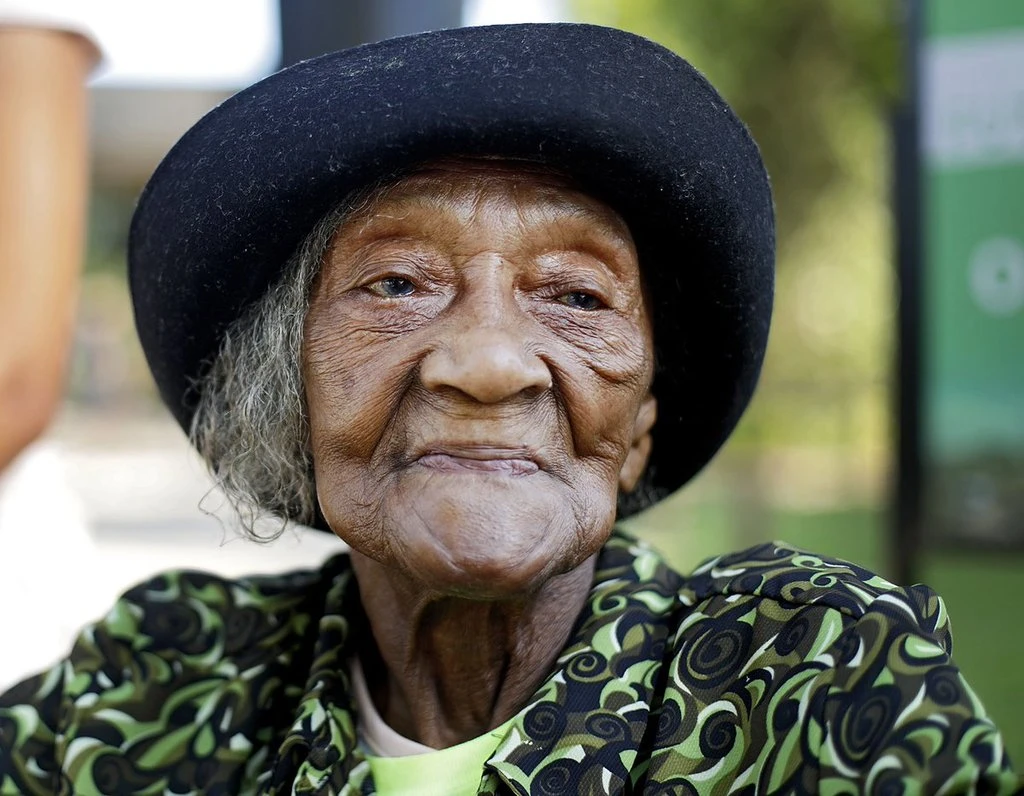By DAWN TREE & REGINA GOODWIN
Ronnie James Wilson, the musical prodigy who created his first band at George Washington Carver Middle School at age 14 and later convinced his two youngest brothers to join him to form an R&B sound of thumping funk and fun that also celebrated their Greenwood community roots, died Tuesday, Nov. 2.
He was 73.
His widow, Linda Boulware-Wilson, told The Oklahoma Eagle that Ronnie Wilson died at their Tulsa home after he suffered from a stroke and rapid declining health. She said he never regained consciousness.
“The love of my life was called home this morning,” Wilson’s wife, Linda Boulware-Wilson, said in a Facebook posting on Nov. 2. “Ronnie Wilson was a genius with creating, producing, and playing the flugelhorn, trumpet, keyboards, and singing music, from childhood to his early Seventies.”
She fondly said of her husband, “He was a genius. He was funny, very intelligent, serious and super private; he was the love of my life.”
Musical Roots
Before creating his band, Ronnie Wilson selected a name that moralized his roots as a childhood growing up in the historic Greenwood District. He combined the streets that comprised the heart of Tulsa’s Black community – Greenwood Avenue,
Archer and Pine streets – to create a name that often-displayed playful images of gapped tooth women on their album covers.
Ronnie Wilson, who was born on April 7, 1948, honed his craft like many other musical families: inside the church. Their father, Bishop Oscar Wilson, was the pastor of the Pentecostal church, Hearne Temple Church of God in Christ. Their mother, Irma Collins Wilson, was the church’s pianist for more than 45 years and also taught music.
Ronnie Wilson would continue to showcase his music talents throughout his school years at Carver and later as a celebrated drum major for Booker T. Washington High School marching band.
A year after he graduated from Booker T. in 1966, he founded the GAP Band and recruited his younger brothers then-14-year-old Charlie Kent Wilson and then-11-year-old Robert Lynn Wilson to join.
While Ronnie Wilson enjoyed singing, he was equally versatile as a musician playing the flugelhorn, keyboards, piano, trumpet was a percussionist as well as composing their music and writing the lyrics.
Priscilla Wilson, who was Ronnie Wilson’s childhood sweetheart and married him a year after he graduated from Booker T. Washington High School in 1967, recalled how Ronnie patiently waited for his younger brothers to get older so they could become a band.
Because he had absolute or perfect pitch, Ronnie could create an array of sounds and play several instruments.
The Songwriter
During their heyday of the professional career – which spanned from 1974 to 2010 – Ronnie Wilson was instrumental in writing many of the signature and iconic songs, “Oops Upside Your Head,” “Nothing Comes to Sleepers” and “Yearning for Your Love” among other hits.
It would take seven years -from playing in bars, small venues – before the Gap Band would release their first album, Magician’s Holiday,” in 1974. They received help from famed Tulsa musician Leon Russell, who recorded their album in his Shelter Studios on 3rd Street.
Musician and early GAP band member Chris Clayton reflected on the early days of making music with the Wilson brothers, Odell Stokes, Roscoe Smith and Lawrence Scott. Together, they left Tulsa in the mid 1970s, seeking music industry opportunities in Californian.
“I drove the car to California, early in the 70’s,” he said. “We all stayed in one room, with another family.”
The California Dream
Clayton said Ronnie Wilson’s expansive musical skills helped form the band’s style and groove. “He was a vocalist and a great trumpet player,” he said. “His flugelhorn had a mellow, awesome tone, very sweet.”
In the early years, Clayton said the GAP Band shared studio time with other established musical acts, like Ike and Tina Turner and The Brothers Johnson.
They were the opening acts for the jazz-duo Tuck and Patti Andress (Tuck Andress is a Tulsa native), Parliament-Funkadelic and The Rolling Stones.
Priscilla Wilson said Ronnie was such a talented musician, that he was often asked to fill-in to perform with other musicians, such as a trumpet player in James Brown’s famous brass section.
“His musical prowess exceeded what most people” were capable of performing.
These opportunities helped the GAP Band chart their own legendary path. Their breakthrough came in 1979 after meeting with Lonnie Simmons, founder of Total Experience Productions. He met with the Wilson brothers and signed the band to their first major label contract with Mercury Records.
The Gap Band’s third self-titled album would produce the single, “Shake,” which hit No. 4 on the Billboard Hot Soul Singles’ chart and provided them with greater national recognition.
After “Shake,” the band followed with other hits including the 1980 R&B Top Ten hits “Steppin’ Out” and “I Don’t Believe You Want to Get Up and Dance (Oops, Up Side Your Head.”
But it was in the 1980s that the group’s distinctive electro-funk style would come to define the era’s increasingly synth-heavy R&B sound. The band produced several hit songs, including “Party Train,” “Burn Rubber on Me (Why You Wanna Hurt Me),” and “Outstanding.”
Their biggest hit came in 1982, “You Dropped a Bomb On Me,” which for many years was thought to be in reference to the racial attacks on Tulsa’s Black community. However, in a 2021 interview with ABC, Charlie Wilson, author of the song, explained that the song was referring to “one made of love.” He also stated that the band had been trying to draw attention to the massacre since they first started singing together, according to Blackpast.com.
Friends Reflect on His Legacy
Since the news of Ronnie Wilson’s passing broke, musicians and fans from across the world have voiced praised for his music.
But Wilson holds a particularly poignant place in the hearts of North Tulsans. They remember him as the heart and soul of the community’s music scene.
“Ronnie was the serious one, and I looked up to him because he truly represented the music,” Bobby Eaton says. “All the brothers had their traits. They were all likable, but Charlie was the friendliest, and Robert was the wild.”
Eaton, a former bass player, now owns the North Tulsa radio station KBOB 89.9.
Eaton reflected on how the Wilson brothers grew up playing music at their father’s church and echoed the same words as his wife when describing his amazing musical talents.
“He was a genius,” Eaton states.
The Gap Band released its debut album, “Magicians Holiday”, in 1974. But it was in the 1980s that the group’s distinctive electro-funk style would come to define the era’s increasingly synth-heavy R&B sound. The band produced several hit songs, including “Party Train,” “Burn Rubber on Me (Why You Wanna Hurt Me),” and “Outstanding.”
“I love what they did; they took Tulsa’s sound and went all around the world with it,” local Tulsa musician Ray Vaughn said.
Vaughn explained that theirs was distinctively Tulsa sound. “It’s a sound that is a funk type with good love ballets and beats that get you up and shake your booty,” Vaughn said. “Ronnie kept the horn section vibrant, and it was contagious.”
Vaughn, a fellow horn player, vocalist, and keyboardist with the Outback group, remembers appreciating Ronnie Wilson’s talent as he continually sought inspiration from horn players.
GAP Band’s Influence Today
The exceptional mixed-genre sound of The Gap Band incorporated funk, blues, jazz into a musical stew. The band has continued to inspire countless artists in the generations that followed. Their songs were sampled or covered by a wide range of nationally known artists, including Ice Cube, Mary J. Blige, N.W.A., Nas and Ashanti. The group also earned songwriting credits in 2015 on the Mark Ronson and Bruno Mars smash “Uptown Funk,” after noting similarities between the song and its own, “Oops Upside Your Head.”
In 2005, the band was honored with a BMI Icon Award, awarded to songwriters for their “enduring influence on generations of music makers.”
The band continued to make music for 43 years together until the youngest brother and bassist, Robert Wilson, died of a heart attack at his home in Palmdale, California on August 15, 2010. He was 53.
Today, Ronnie’s three sons, Andre, Brian and Casey Wilson, continue their father and uncles’ legacy with their own musical talents as producers, musicians and singers. They perform as the “GAP Band Tribute.”
Brian said his father, whom he affectionally called “Pops,” and his uncles’ influence remain impactful today. He said his father’s music “touched the world.”
As much success the Wilson brothers shared, the fame also took them down some dire paths.
Linda Boulware-Wilson said the drug traps of the music industry would intertwine with her husband’s life. She said Ronnie Wilson entered rehab and was able to regain his spiritual center. Linda Boulware-Wilson said she and Ronnie Wilson have been living in Tulsa for nearly a decade after he completed a nearly 25-year second career as an evangelist pastoring in California
and in the Houston and San Antonio, Texas, areas. Until his death, he was closely involved in the music ministry of San Antonio’s Community Bible Church.
“He would want people to know, he was saved and served as a church pastor from 1990 -2017,” she said.
In the end, she said Ronnie Wilson dealt with a series of unpredictable strokes and health challenges. A final stroke led him into a semi-coma stage, and he died peacefully in the presence of his wife.
Ronnie Wilson’s remarkable music was a constant throughout his life; his sweet tone and legacy will resonate for generations to come.
Lead vocalist Charlie Wilson, 68, the last surviving member of band, took to Twitter to pay tribute to his big brother.
“Thank you for sharing your prayers & love regarding the loss of my brother Ronnie. I appreciate all your messages & am grateful for the support during this difficult time,” he wrote, sharing a message from the Bible. “’He heals the brokenhearted, and binds up their wounds.’ (Psalms 147:3).”
Ronnie Wilson was preceded in death by his parents; and a sister Priscilla Wilson; his survivors include his sons, Andre Wilson, Brian Wilson and Casey Wilson; daughters Ashley an Audrey; nine grandchildren, one granddaughter; and a host of nieces and nephews.
Funeral services will be held Wednesday, Nov. 10, at Vernon Chapel A.M.E. Church. Other details are pending.











